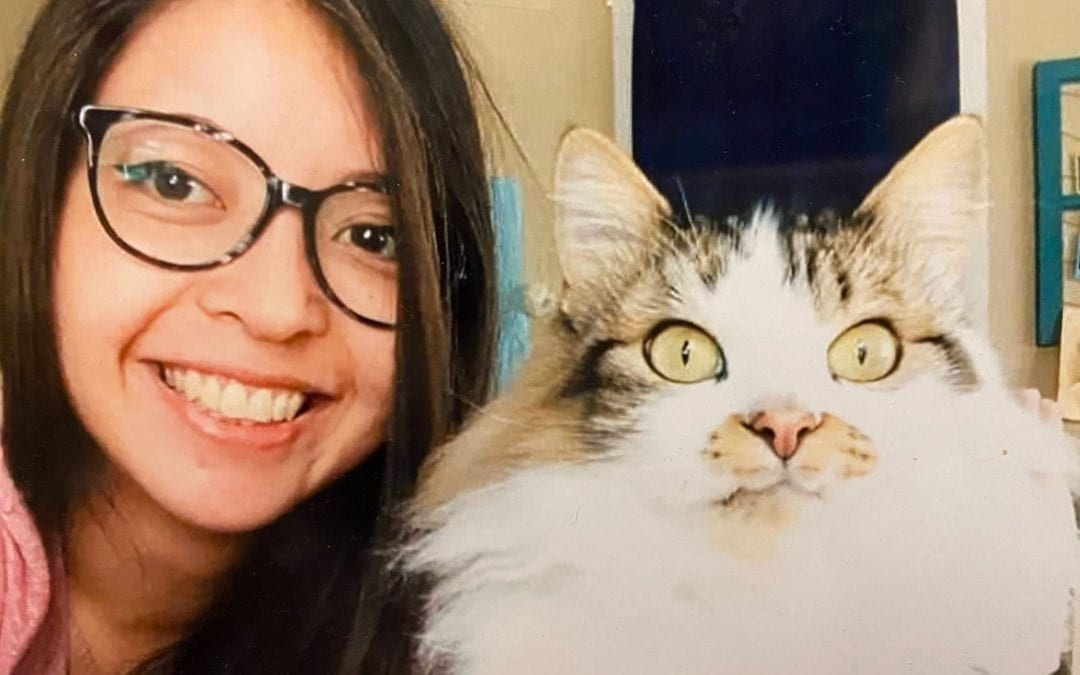As a graduate student in STEM, a wife, and a stepmom (aka the fun parent), it’s difficult to decide what the biggest challenge is that this pandemic has created for me. As a scientist in training, the fear of “publish or perish” became unavoidable for me as soon as campus shut down in March. I was already delayed by some failed experiments; was this pandemic going to delay me even further in the “race” to publish and graduate? Fortunately, we have the internet, so on April Fools Day 2020 (ironically), I defended my research proposal to my committee and was able to advance to Candidacy. But that sense of victory was short-lived due to various (pandemic-induced) delays to starting my cell cultures and experiments. In the world of cell biology and toxicology, if you don’t have cells growing in lab, you can’t do much data collection. As a graduate researcher, it felt like the pandemic had thrown me into an uphill race against time, where time moved simultaneously at warp speed and not at all.
In truth, this discombobulated feeling and the loss of any sense of normalcy was true for me not just as a graduate student but also as a wife and a full-time step-parent. Since school “shut down” last year, I had to learn how to juggle my own graduate studies along with helping a 5th grader juggle his, all from the comfort and discomfort of our kitchen table. If you’ve ever tried teaching a 5th grader math in a normal world, try teaching them math during a global pandemic where the only person they have seen for days is a cranky, over-caffeinated, and poorly-rested post-apocalyptic specter of a mother who also happens to be a late-stage PhD student. The amount of effort it took Operation Warp Speed to produce the COVID19 vaccine in under a year pales in comparison to the amount of effort it took my stepson to survive months of quarantine with me. Fortunately, my husband who is infinitely more patient than I am (and an essential worker), helped keep our sanity by bringing us laughter, news of the outside world, and curb-side groceries.
Besides the months of delayed academic progress and of quarantining with a pre-teen, the greatest challenge that COVID created for me is best summed up in the words of my 11-year-old roommate, “Why can’t you just chill?” After months of COVID exhaustion, I found myself unable to relax and disengage. I didn’t realize it was a problem until Christmas break, when instead of enjoying down time with my family, I found myself being very impatient, rude, and unforgiving with both myself and them. I had merged work, school, and performance-related stress with my personal and family life for so long that I could not seem to take a moment to just be. I didn’t know whether the issue came from an unhealthy sense of “resting” guilt, a poor sleep schedule, an unrealistic desire to “get ahead,” or all of the above. But what I did know is that I had to make a conscious effort to not let any external circumstances, pandemic or otherwise, steal my peace, my joy, or my ability to rest.
Since then, I’ve read many an Instagram and Nature Careers Newsletter post about prioritizing your health and wellbeing. From eating less processed foods and running more, to making sure you wear pants every morning to do work from your living room, I cannot say that all the techniques have worked for me (perhaps because I don’t stick with them long enough to give them a chance). But the one tool that has, is pretty simple and I don’t know why it took a pandemic for me to learn about it and use it. It’s called “book-ending your days.” All it is, is you deciding that every morning when you wake up, the first thing you do (for 30-60 minutes) is not something work-related, but something that brings you joy. And every night (for another 30-60 minutes), you plan to end your day doing something that brings you joy. In my case, my morning “book-end” activity usually consists of listening to Trevor Noah on The Daily (Social Distancing) Show or a Wondery podcast on Spotify, while I carry out my morning routine. This has helped me limit the amount of time I spend checking/responding to work emails before I even get to work, and to start off the day with a good laugh and gratitude for Trevor Noah’s existence. After I’ve left the lab around 6 or 7 pm, my nighttime “book-end” activities vary a little more, but they usually consists of yoga with my cat (and husband, if he’s home), watching The Office with my cat (and husband, if he’s awake), and/or reading true crime novels to my cat (and my husband, who’s already asleep). These seemingly unimportant activities make unwinding and falling asleep much easier.
Surprisingly, this “book-ending your days” method has worked well for me for over a month now, and although I don’t think it’s a complete fix to COVID- and general PhD student-related stresses, I feel a bit less overwhelmed and a bit more able to “chill” on command. My stepson seems to agree, but he thinks that my breakthrough is more related to the fact that he’s returned to in-person schooling. I can neither confirm nor deny.
 Grace V. Aquino is a fifth-year Ph.D. candidate in the Department of Environmental Science. Her research focuses on the optimization of an in vitro blood brain barrier model that can be used to better understand the development of neurodegenerative diseases associated with exposures to environmental chemicals.
Grace V. Aquino is a fifth-year Ph.D. candidate in the Department of Environmental Science. Her research focuses on the optimization of an in vitro blood brain barrier model that can be used to better understand the development of neurodegenerative diseases associated with exposures to environmental chemicals.
